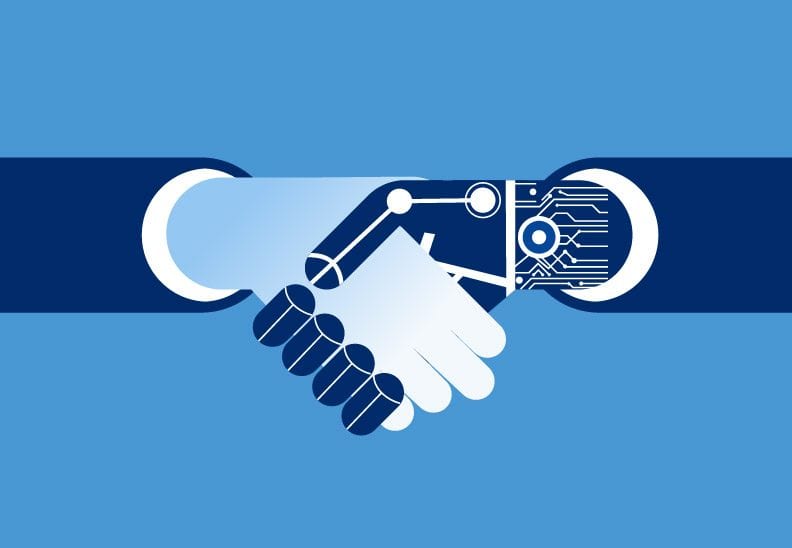The Hybrid Hiring Era: the importance of balancing technology and human touch

New research – Navigating the Hybrid Hiring Era – by leading HR tech experts Tribepad has revealed that even though digital recruiting has risen, half of UK candidates still prefer human interaction.
New research into the job-seeking landscape in 2021 has revealed how, as hiring was digitised across all organisations in the UK due to the pandemic; the candidate experience has changed for the better.
Two-thirds of respondents (64%) believe video interviews have had a positive impact on the interview and hiring experience and two fifths (41%) think that companies who use automation in the recruitment process are making getting a job easier. Nearly half (48%) say video interviews and applications make them feel more confident and that they can present a better version of themselves.
The research was commissioned by leading HR-tech company Tribepad and is based on the opinions of 1,000 job-seekers as part of its Navigating the Hybrid Hiring Era report.
Growing understanding and positive experiences with HR-tech by candidates will come as welcome news for hiring teams and businesses, as industries witnessed a huge uptick in application volume as unemployment increased. Tribepad’s own data showed that overall annual application volume increased in sectors such as outsourcing by 110%, public sector (93%) and property (63%). As a result, many organisations have implemented additional screening measures to cope with the additional work aided by automation.
The research revealed that many job-seekers can see the benefits of technology and automation, with half (49%) saying they experience a quicker application process, 43% noticing a quicker response time, and a third (35%) saying they value the more regular updates on the progress of their application.
Only 24% of respondents applied for jobs directly through a recruiter, showing how the role of the recruitment agency diminished. But recruitment teams can’t leave everything up to technology – while a third (32%) of candidates prefer to search for jobs online, without human interaction, 50% of job seekers still prefer human interaction when looking for a job, rather than doing it all online. Many of those said the process felt dehumanised (45%). The main barrier for this group was that automation bases its criteria on past facts, not future potential (49%).
Applicants also favoured contact with people, whether recruiters or hiring teams in-house, in face-to-face interviews (71%), on the phone (68%) or on a video (65%). At the other end of the scale, they were less important to the screening stage of the application experience. Automation was preferred in online tests (44%) and for right to work and criminal record checks, the preference between humans (43%) vs automation (33%) was much closer. (full details can be seen in attached graph)
Commenting on the report, Dean Sadler, founder and CEO of Tribepad said: “The world has shifted in the last year, accelerating trends that were already on their way in. What’s clear is that recruitment can’t go back to the analogue era. Not now that applicants are used to practices that help them feel more confident, prepared and save them time.

“But it can’t be fully digital either. Job seekers still depend on human interaction to determine a lot about a company. For example, a company’s culture can give them a better sense of how comfortable they’d feel in that environment – something that can only fully be experienced in person. In-house recruiters and hiring teams benefit from these connections too, picking up on nuances like a candidate’s potential, presence and ambition.
“As we emerge into a post-pandemic world, hiring is on the increase. And recruitment teams need to be ready for the hybrid hiring environment; that means ensuring you have the right mix of tech and human input, so that you can create a candidate hiring experience that’s easy to use and hire the best people out there.”
READ MORE:
- Scaleup Spotlight: Plum is on a mission to build lifetime wealth for all
- Why has Tink acquired FinTecSystems?
- Scaleup Spotlight: How Light Science Technologies is revolutionising agriculture
- What can corporates learn from digital transformation in the COVID era?
Simon Pollen, Strategic Resourcing and Talent Acquisition Manager from Richmond and Wandsworth Council adds: “While our onboarding is now automated via Tribepad and other innovations – like using video to market a vacancy – the human touch still remains key in establishing the sense of inclusivity for our organisation. It’s through this mix that the feedback we receive from every hire is hugely positive, with the biggest stand out being the personal attention and service received throughout the entire recruitment process. From guiding candidates through the anonymised application process right up to the point of checks and references.”
For more news from Top Business Tech, don’t forget to subscribe to our daily bulletin!
